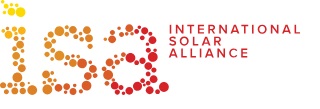
The International Solar Alliance (ISA) is an intergovernmental organization that was launched in 2015, by the Prime Minister of India and the President of France, at the United Nations Climate Change Conference held in Paris.
ISA is an action-oriented, member-driven, collaborative platform for increased deployment of solar energy technologies.
- Vision: Let us together make the sun brighter.
- Mission: Every home, no matter how far away, will have a light at home.
- Headquarter: National Institute of Solar Energy (NISE) in Gurugram, India.
- Membership: 119 Signatory members (100 ratified)
- Eligibility: All UN Member States (2020 Amendment to Framework Agreement)
|
The key objectives of ISA
- To facilitate the deployment of 1000 GW of solar energy capacity globally by 2030.
- To mobilize more than US$1 trillion in investment for solar energy deployment in member countries by 2030.
- To establish solar energy as a mainstream source of energy for all.
- Activities under the programmes focuses on 4 priority areas –
- Analytics & advocacy
- Capacity building
- Programmatic support
- Readiness and enabling activities
Initiatives taken by ISA
One Sun One World One Grid (OSOWOG):
- The idea for the One Sun, One World, One Grid (OSOWOG) initiative was put forth by India in 2018. The initiative aims at connecting energy supply across borders.
- The vision behind the OSOWOG initiative is the mantra that “the sun never sets”. The OSOWOG initiative aims to connect different regional grids through a common grid that will be used to transfer renewable energy power and, thus, realize the potential of renewable energy sources, especially solar energy.
Solar Technology Application Resource Centre (STAR C):
- for capacity-building and institutional strengthening.
Global Solar Facility:
- to catalyze solar investments in underserved segments and geographies across Africa.
Development of Large-Scale Solar Power Projects
- under Solar Park Concept in Cluster/Group of ISA Member Countries.
ISA solar fellowship for mid-career professionals
- The objective is to contribute towards the long-term development needs of member countries through the creation of skilled and qualified professional manpower for the management of solar energy projects, programmes, and policies.
Importance of ISA
For the World
- Encouraging investment in solar energy: ISA aims to mobilize investments of over one trillion dollars in solar energy by 2030. This could create new opportunities for businesses and promote economic growth.
- Promoting access to energy: ISA's focus on solar energy can help increase access to energy, especially in rural and remote areas. This can contribute to poverty reduction and overall human development.
- Promotion of Clean Energy: The main objective of ISA is to promote the use of solar energy as a clean, renewable and sustainable energy source. This is important for achieving climate change goals.
For India
- Climate Change Adaptation: India is particularly vulnerable to the impacts of climate change, and ISA can help India’s efforts to mitigate and adapt to climate change.
- Renewable Energy: India has set an ambitious target of achieving 450 GW of renewable energy capacity by 2030. ISA can help India achieve this goal by promoting solar power deployment in member countries.
- Soft Power: India can enhance its reputation as a responsible global player committed to sustainable development by playing a leadership role in the ISA.
Challenges for ISA
- Coordination issues among member countries are hampering the effective implementation of initiatives.
- Geopolitical challenges: China dominates the global solar supply chain, which is an obstacle to achieving energy parity.
- Private sector participation: In most developing countries, electricity falls under the domain of the public sector while private sector participation is low which can make renewable energy inaccessible, hindering energy equity and justice.
- Implementation issues: Land acquisition issues and potential ecological damage caused by land-intensive solar deployment.
Way Forward
- Ensure equity in energy security: Delink per capita energy consumption from energy intensity while focusing on people-centric development.
- Focus on energy equity: Along with scaling up renewable energy generation, focus should be on involving all stakeholders with a bottom-up approach for solar dissemination.

 Contact Us
Contact Us  New Batch : 9555124124/ 7428085757
New Batch : 9555124124/ 7428085757  Tech Support : 9555124124/ 7428085757
Tech Support : 9555124124/ 7428085757







